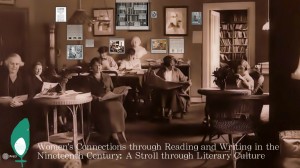HERA Project Travelling TexTs 1790-1914
Transnational Reception of Women’s Writing at the Fringes of Europe (2013–2016)
This HERA-funded collaborative research project studies the role of women’s writing in the transnational literary field during the long 19th century. It explores in terms of gender cultural encounters through reading and writing that contributed to shaping modern cultural imaginaries in Europe. The systematic scrutiny of reception data from large-scale sources (library and booksellers’ catalogues, the periodical press) forms the basis for the study of women’s participation in this process. By tracing and comparing the networks created through women’s writing from the perspective of five countries (Norway, Finland, Slovenia, Spain, the Netherlands) located at the fringes of 19th-century Europe we question the relations between centre and periphery from a gendered point of view. The project thus contributes to the development of new, transnational models of writing the history of European literary culture.
Discover the connectedness of women in nineteenth-century literary culture
The use of shared digital research tools is central to the implementation and coherence of this project. Building on the database WomenWriters and the experience of the COST Action Women Writers In History, a Virtual Research Environment will be developed, providing not only advanced technology for statistical analysis, charting and visualisation, but also the possibility to work together in the virtual space. Parts of it will be open to the public, which allows interested user communities to engage with our research. Outputs will include a conference, peer-reviewed articles and book publications. Enhanced online publication will directly link to the research data. These activities will be complemented by workshops and seminars organised together with our two Associated Partners, Chawton House Library (UK) and Turku City Library (Finland), sessions at international literary festivals in Norway and Slovenia inviting writers to meet their ‘foremothers’, and exhibitions.

